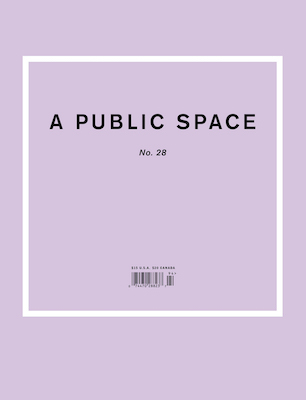Poetry
Simple as That
Miyó Vestrini
Translated by Cassandra Gillig and Anne Boyer
Log in to read the rest.
If you are a subscriber but do not currently have online access, please contact us to link your subscription at subscribe@apublicspace.org
Not a subscriber?
Not yet a subscriber? Join us now, and become a part of the conversation.
About the author
Miyó Vestrini (1938– 1991) was born in France and immigrated to Venezuela at the age of nine. She was a prizewinning journalist and the author of three collections of poetry. Grenade in the Mouth: Some poems of Miyó Vestrini was recently published by Kenning Editions.
